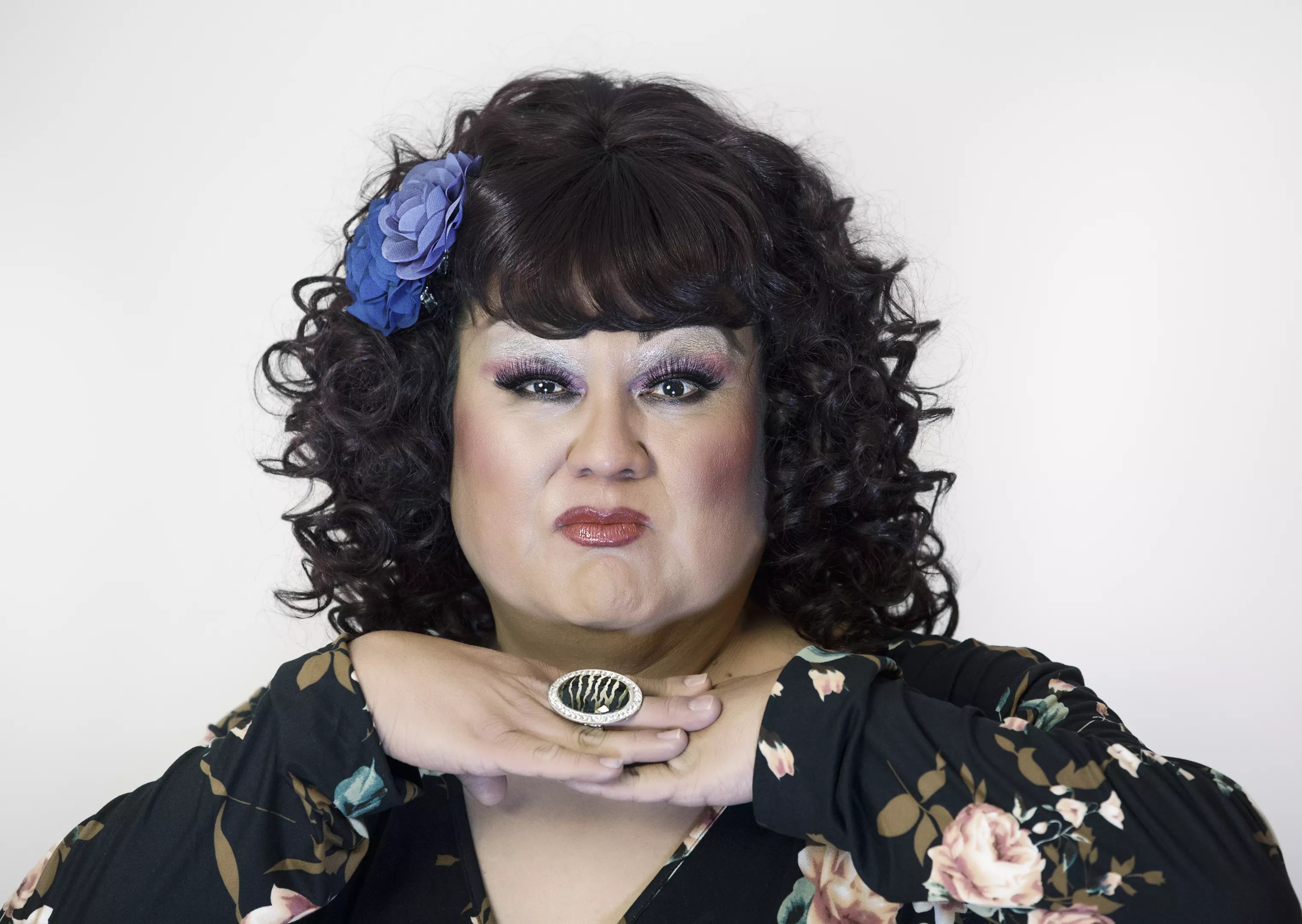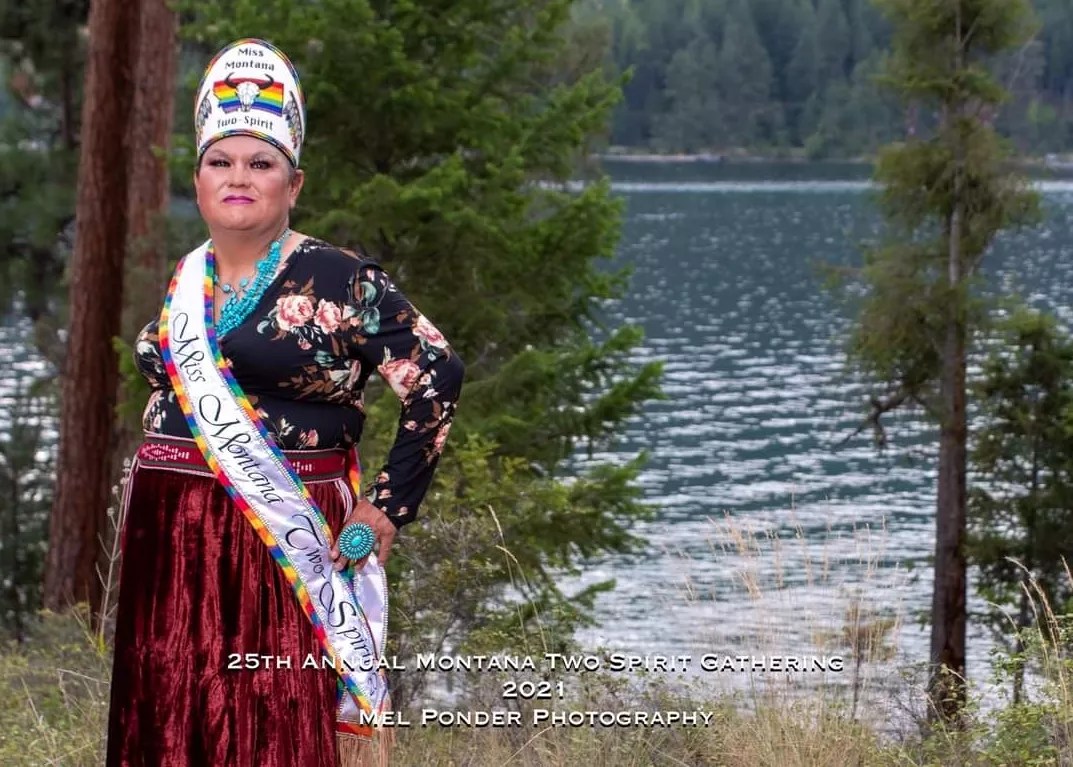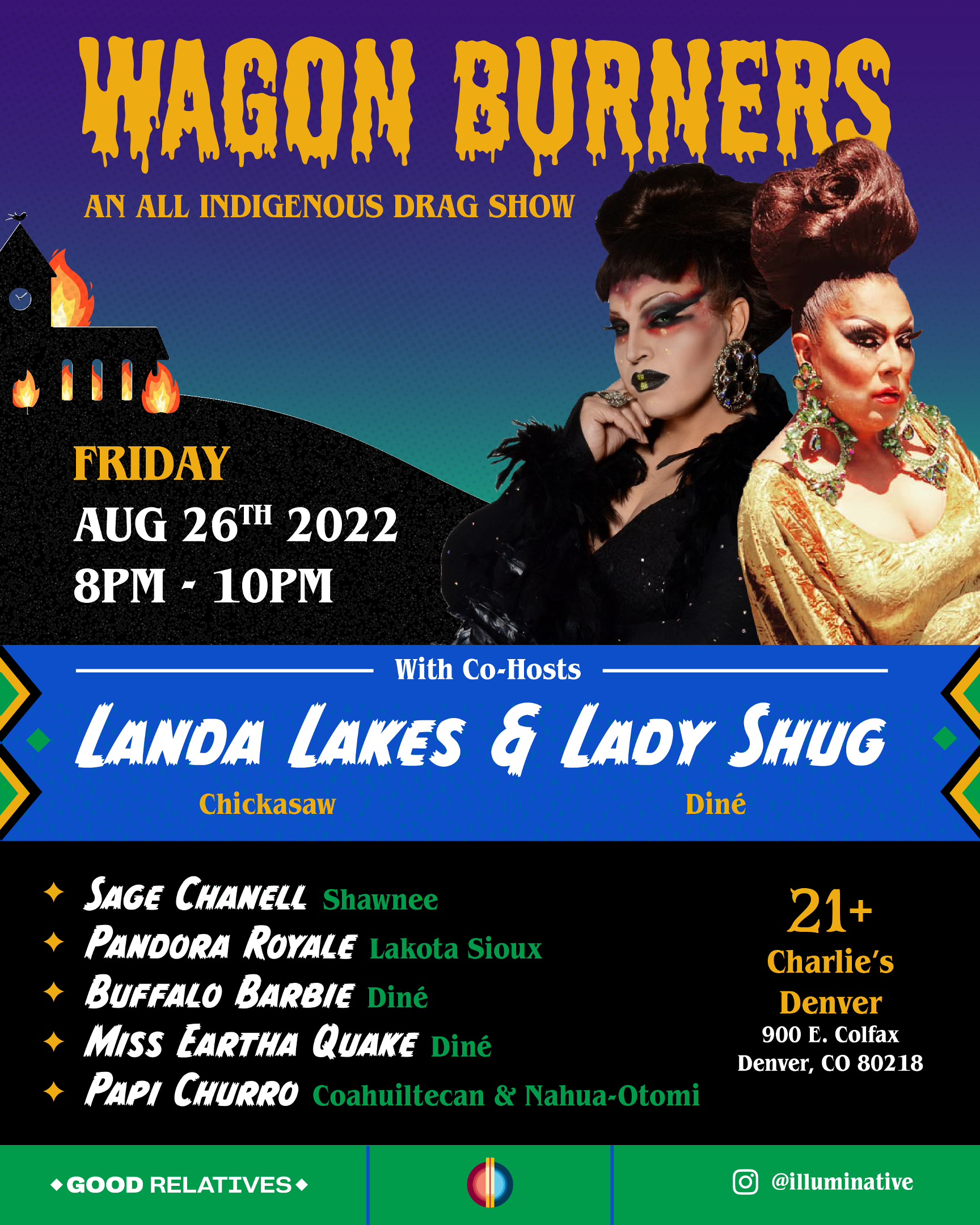
Courtesy of Elton Naswood

Audio By Carbonatix
The term “wagon burners” references Indigenous people who burned the wagons of colonizers to protest the violent occupation of their ancestral lands. So when IllumiNative, a social and racial justice organization founded and led by Native women, decided to host a drag show highlighting Native drag artists, Wagon Burners seemed like an appropriate name for the event.
Wagon Burners: An All Indigenous Drag Show comes to Charlie’s Denver on Friday, August 26, showcasing seven drag performers who are using their art to dismantle the false narratives that have been constructed about Native peoples throughout history. IllumiNative’s senior communications associate Mandy Yeahpau says the event is an important part of the organization’s mission to expand the representation of diverse Native identities in pop culture, politics and beyond.
IllumiNative was formed in 2018 by Crystal Echo Hawk, who previously led the Reclaiming Native Truth project – the largest public opinion research project ever conducted by, for and about Native peoples. She created IllumiNative to address the study’s findings, which concluded that the erasure of Native voices in politics, media, history, research and education is one of the greatest threats to the Native community today. Stereotypes and inequities thrive and multiply in the absence of accurate and informed self-representations of Native identities.
Yeahpau, who descends from the Comanche, Cherokee and Tara Humara peoples, puts the mission of IllumiNative simply: “It’s to build power for Native peoples in many different ways, including politically and [through] representation.” This includes grassroots organizing across communities, conducting its own research studies, mentoring Native creatives, and writing informative guidelines on how non-Natives can collaborate with Indigenous peoples to highlight their stories in a respectful way. Although the organization is based in Tulsa, Oklahoma, it chose to have Wagon Burners in Denver because of its central location, which is more convenient for its cross-country network of employees.
The Wagon Burners show is just one step in a larger IllumiNative campaign that aims to highlight the many diverse identities within Native communities, including Two-Spirit and LGBTQIA+ folks. “The event that we’re planning is a small piece of a larger campaign that we’re working on this year. We haven’t officially announced it just yet, but we call it our Good Relatives campaign,” Yeahpau explains. “It’s just really encouraging all of our relatives to show up for different Native identities and be really inclusive. We have urban Natives, there are folks that are maybe not enrolled but were raised in a Native community or vice versa – they are enrolled but haven’t been raised in a Native community – and then also our Two-Spirit and LGBTQ relatives.”
Yeahpau, who identifies as bisexual, says that while homophobia and transphobia are still prevalent in some Native communities, one specific issue that IllumiNative is addressing is an overall lack of understanding or cohesion regarding the non-Native terminology used to describe these identities. Two-Spirit is a designation that’s widely misunderstood, even within Indigenous communities. The term was only coined in 1990, and its usage can vary by tribe.

Miss Eartha Quake holds the title of Miss Montana Two-Spirit 2021.
Mel Ponder Photography
“Two-Spirit can mean a different thing in different communities. It just depends, and it’s about asking people how they wish to be identified,” she explains. “Basically, it’s an umbrella word used when someone has both feminine and masculine spirit. Two-Spirit is sometimes used as a blanket term for LGBTQIA folks, and it really shouldn’t be applied that way. Some folks are LGBTQ and don’t identify as Two-Spirit, and some do. There’s a nuance there, and so I think getting our other relatives who aren’t part of those communities to recognize and understand that, and be welcome and opening, can be a challenge.”
Yeahpau admits that she previously grouped Two-Spirit and queer Native identities together, until Two-Spirit colleagues pointed out that including them as part of the LGBTQIA community obscures the fact that Two-Spirit identities pre-date current understandings of queerness and gender. “I used to add it on when I would be writing or speaking – as in ‘LGBTQ2S’ – and you’ll see folks use that a lot, but what I learned being in community with more Two-Spirit folks is that they prefer Two-Spirit to be separate and pulled out of that alphabet soup,” she clarifies.
Separating “2S” from “LGBTQIA” acknowledges that while the communities may overlap, they are not interchangeable, and the term “Two-Spirit” is just an approximate translation of something that is actually much more complex and varied within Indigenous languages. Says Yeahpau, “The terminology is newer, as far as that word, but being gender-bending or nonbinary has been around before colonization. That’s why Two-Spirit folks prefer it to be separated from LGBTQIA, because they feel that this has been in existence longer. There’s a lot of Indigenous terminology to designate that.”
She continues, “We always include our Two-Spirit and LGBTQ relatives in everything that we try to do, and that’s kind of the goal of the show. That’s a big piece of doing this work and having this event – just being able to open up these conversations for folks that have been around us or in community. Maybe they thought they understood, and they don’t really.”
According to Wagon Burners cast member Miss Eartha Quake (known as Elton Naswood out of drag), drag artistry is one way that contemporary Native peoples explore and express their Two-Spirit identities. As a Two-Spirit member of the Diné tribe, she says, “My Indigenous culture has influenced my drag with the personification of my feminine spirit that enables the balance to my masculine spirit.” Performances and pageants give Native drag artists such as Quake a platform to educate audiences about the intricacies of their cultures, identities and pre-colonization concepts of gender. “Eartha’s dress and role as Miss Montana Two-Spirit 2021 has exemplified her Diné culture and the Two-Spirit and Native LGBTQ+ communities,” she adds.
It was important to IllumiNative to book several different artists, including a drag king (Papi Churro), to highlight that Indigenous drag is not a monolith, but rather an art form subject to individual interpretation.
“The diversity and talent of Indigenous drag artists are oftentimes overlooked. Thus, it’s important to showcase the Indigenous artistic expression and creativity which have been a part of our cultures, both past and present,” Quake notes.
“We wanted to put our money and efforts behind supporting their work by paying for their performances and giving them a showcase to show it off,” Yeahpau elaborates. “We’ll have videographers and photographers there covering it, so we can share that content and those assets with the performers themselves, and our broader digital audience, as well.”
Wagon Burners will be co-hosted by Landa Lakes (of the Chickasaw tribe) and Lady Shug (Diné), and include performances from Sage Chanell (Shwanee), Pandora Royale (Lakota Sioux), Papi Churro (Coahuiltecan and Nahua-Otomi), Buffalo Barbie (Diné) and Miss Eartha Quake. In addition to highlighting the individuality among Indigenous drag artists, the Wagon Burners show is also a way for IllumiNative to unite Native peoples of all identities across the Denver metro area, which was originally home to the Sioux, Cheyenne, Arapaho and Ute tribes before colonization.

IllumiNative
“For Natives living in urban environments, it can sometimes be hard to find or connect with community,” Yeahpau explains. “Everyone’s a little bit spread out, and there’s little pockets of Native folks who know each other, but maybe they’re not all connected. We saw it as a good opportunity to do that, because there is a lot of good Indigenous representation in Denver. We just want to gather everyone together to build those community connections. That’s really important, especially as Indigenous people. Our approach to things is a little bit different – it’s more relational. We put a lot of emphasis and importance on building relationships.”
IllumiNative also wanted to connect newer drag artists with those who have been in the industry for a while, so that the newer artists could learn from their fellow performers.
“The performers we selected, some of them have been doing this for decades, and some have been doing it for two or three years,” says Yeahpau. “So we did that on purpose, to also create this mini-mentorship where newer drag performers can come in and perform side by side with folks like Landa Lakes and Lady Shug, who have been in the game for a long time. They can learn a lot from their aunties.”
Come celebrate Indigenous drag, learn about Native cultures and gather with Denver’s Native peoples. Don’t forget to tip the performers!
Wagon Burners: An All Indigenous Drag Show, 8-10 p.m. Friday, August 26, Charlie’s Denver, 900 East Colfax Avenue. Admission is free before 9 p.m. and $5 after.